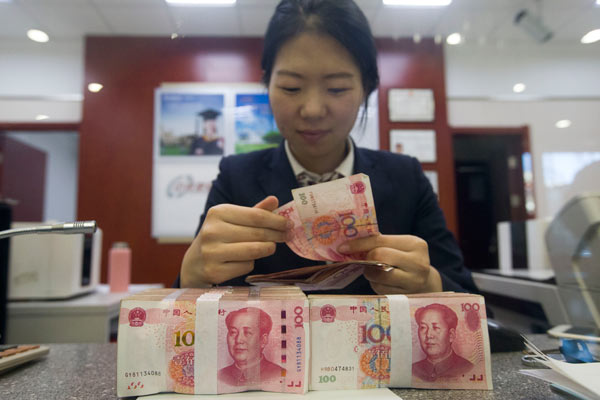IMF, World Bank note efforts to reform nation's finances


Global financial organizations acknowledged China's achievements in recent economic and financial reforms after a two-year comprehensive evaluation of the country's financial sector, while providing recommendations for enhancing risk supervision.
The International Monetary Fund and the World Bank Group jointly published a series of reports on Thursday, with the core being the China Financial System Stability Assessment-a summary of outcomes of the every-five-year update of China's Financial Sector Assessment Program.
China's economic growth has continued during the past five years, while "the financial system has facilitated the country's high growth rate and the consequent sharp decline in poverty rates", the main report said, calling on the financial sector to better support China's economic transformation from an export-and investment-driven model to one depending more on services and consumption.
The People's Bank of China, the country's central bank, released a statement on its website on Thursday saying that "the reports have presented professional and valuable assessments of China's financial system and the recommendations are highly relevant in the context of deepening financial reforms in China".
The report highlighted major advances that China has made in financial sector reform, recent measures including the upgrading of the monetary and macro-prudential policy framework, establishment of a deposit insurance system, implementation of the Basel III regulatory framework, better investor protection and improvements in institutional arrangements in the capital market.
The financial system of the world's second-largest economy has developed rapidly in size and complexity, with financial assets reaching nearly 470 percent of GDP so far, becoming one of the world's largest, according to the IMF.
The assessment also identifies potential concerns about the Chinese financial system, including sustained rapid credit growth, especially in local government and household loans; increasing complexity of wealth management products; and implicit guarantees that may cover potential risks and improperly allocated investment funds.
"The authorities have recognized these risks and are proactively taking important measures to address them. These include strengthening systemic risk oversight, further improving regulation, and moving toward functional supervision," the Financial Sector Assessment Program team said.
It confirmed that regulatory and supervisory assessments of the banking, insurance, and securities sectors "show a high degree of compliance with international standards", although there are still gaps.
The newly established Cabinet-level Financial Stability and Development Committee is expected to play a significant role in monitoring systemic risks and preventing financial disruptions, Ratna Sahay and James Walsh, economists and leaders of the assessment program with the IMF, said.
After the committee's first plenary meeting a month ago, the country announced new rules to contain risks of asset management products.
The IMF made five key recommendations to improve China's financial system: systemic risk monitoring, interagency coordination, bank capital, liquidity buffers and crisis management. Addressing them "should help China continue to grow both rapidly and safely", Sahay and Walsh said.
The central bank pledged to adapt these recommendations and to further deepen financial reform, take concrete steps to prevent and contain risk and strengthen cooperation with international organizations.
Huang Yiping, a Peking University economics professor and member of the central bank's monetary policy committee, said that the overall evaluation is "relatively positive and objective". It recognized the achievement of Chinese financial authorities while giving some detailed solutions to stabilize the financial sector, Huang said.
The Financial Sector Assessment Program, jointly launched by the IMF and the World Bank in 1999, aims to gauge the stability and soundness of the financial sector and the quality of the regulatory framework of member economies and to assess the financial sector's potential contribution to growth and development.
This assessment, mandatory for jurisdictions with systematically important financial sectors, started the latest round of updates for China in October 2015.
- Potential risks in financial system are being addressed
- China's central bank defends financial system stability after IMF, World Bank assessments
- Financial market access set to be broadened further
- IMF says China could further improve financial stability
- China central bank defends financial system stability after IMF, World Bank assessments




































